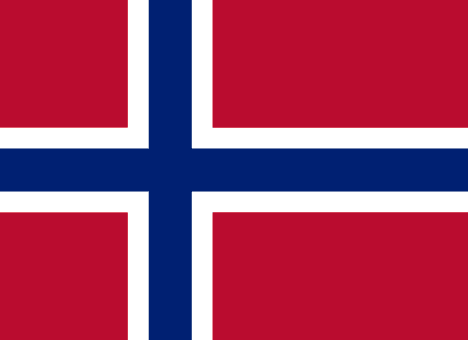- Call us on +91 85859 54773
- email us at counsellors@eugateway.in






For the majority of study programs in Norway, there's only one admission period. In general, the application deadline for foreign students is between December 1st to March 15th for courses starting the following autumn (August).
Norway doesn’t have a central application portal. Instead, applications are submitted to individual schools. This means that requirements vary from school to school and program to program. You’ll need to check before applying.
This is generally what you’ll need to apply to schools in Norway:
Not all international qualifications are recognized in Norway. If that’s the case, then you’ll need to sit an entrance exam.
Application deadlines vary from school to school, but you’ll normally need to submit an application no later than February before you want to start.
Yes, students may be allowed to work up to 20 hours per week. Certain restrictions do apply.
All students who plan to stay in Norway for more than three months will need a Student Residence Permit.
Visa requirements vary from country to country. To get a student visa for Norway, you’ll generally need the following:
You’ll need to present these documents at your local Norwegian embassy or consulate. If your documents are not in Norwegian or English, you’ll need to present them with a notarized translation. Some Danish and Swedish embassies and consulates can also process applications for Norway.
Please beware that you will be asked to document that you have enough money to live on, at least NOK 126 357 per year (2022). You will have to apply every year if you are following a study programme that lasts more than one year. If you have been admitted to an institution that charges tuition fees you will also have to document that you are able to cover this extra cost. As a general rule, the Norwegian Directorate of Immigration requires the money to be deposited in a Norwegian bank account. There is also a charge for the visa application of NOK 5 900,- for 2022. This also counts for a renewal of the visa.
Several scholarships and financial schemes are available for foreign students. Eligibility depends on your current country of residency and level of completed education.
Norway doesn’t charge tuition fees. It doesn’t matter where you’re from or what you’re studying, you normally won’t pay a single Krone in tuition in Norway. However, this only applies to public schools that receive funding from the state.
The logic of the Norwegian government is that, as Norway can be expensive, this can be offset through free tuition.
Private schools are free to set their own fees. These can vary from 86,000NOK (US$9500) for undergraduate programs to 103,000NOK (US$11,300) or more for postgraduate study. You can usually find out whether a school is public or private on their website.
Doctoral programs are often classed as jobs in Norway, meaning that you’re paid while you research and teach.
As for scholarships, Norway has plenty on offer. The most sought-after are the Nordplus Student Exchange, which offers generous funding, and those offered by the Sons of Norway. Some schools in Europe and North America also offer funds to those looking to study abroad in Norway.
Living expenses in Norway are considered to be higher than in many other countries. You should expect to have NOK 8,900,- per month for subsistence. Requirements for subsistence are also determined by regulations concerning the Student Residence Permit.
Public universities in Norway do not ask for tuition fees even for foreign students. However, students do need to deal with their routine and other expenses. Here is the list of affordable universities in Norway for international students:
For studying in Norway for international students free, these are scholarships which universities offer :
You should convince the officers of the university from your application. You should try to make it unique by including:
These are the things that will increase the chances of getting accepted into colleges in Norway for international students. Having a solid application is the most crucial step to getting accepted at a university in Norway.
While you don't need to learn the Norwegian language, you will need an English certificate for your studies in Norway. Universities usually accept:
To avoid encountering problems during the official application, you should always check which English language test is accepted by your university and what grade you need to be accepted.
Norway prides itself on delivering high-quality higher education. In fact, the higher education system is more than 200 years old.
Norway is part of the Bologna Process. This means that its higher education system is split into three levels, called tiers. These tiers are:
Norwegian and English are widely used across all three tiers. In fact, you can even study other languages, like German and Russian, in Norway.